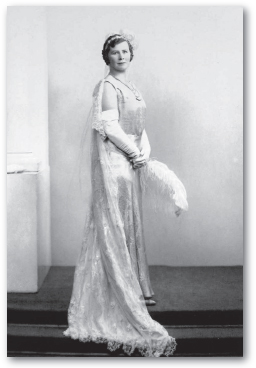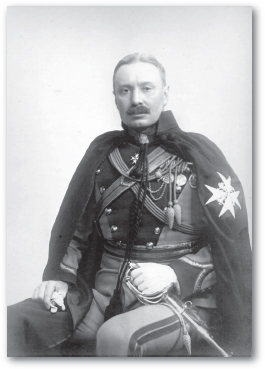Chernobyl Strawberries (37 page)
Read Chernobyl Strawberries Online
Authors: Vesna Goldsworthy
The English were either arrogant, cold aristocrats or boorish, beer-drinking football hooligans. The latter âneeded a war, badly, to get the violence out of their system', according to my practical grandmother.
England had, quite possibly, the worst climate in the world. The entire history of England could be viewed as a series of attempts to escape the weather. The English climate was likely to make me suicidal sooner or later. A neighbour turned up with a copy of
Wuthering Heights
, in which she had highlighted some pertinent descriptions of rain for my delectation.
English sex was an oxymoron. We were too polite to discuss this, but there were hints that English couples were supposed to sleep in separate bedrooms after the birth of their children. In Montenegro, there was a story â perhaps an urban or, rather, a very rural myth, I am not sure â that the mother-in-law sometimes slept (in the most innocent sense) with her future daughter-in-law to check whether her feet were warm and
thus ensure that she would make a worthwhile bedfellow for the son during the long winter nights. As an English bride, my blood circulation was obviously irrelevant. I should need to keep no one warm but myself.

Simon's paternal grandmother
England had perhaps the strangest cuisine in the world. They were reputed to have developed a special jam for every kind of meat, and they smothered their lamb with mint and vinegar. (This made Granny laugh, for Montenegrins are connoisseurs of fine lamb.) The English did not know what to do with vegetables, other than roots, as could be expected of northerners. âAnd God only knows what their patisserie is like,'
worried one aunt, while everyone tried hard to remember an English kind of cake.

âReform Torte,' said a neighbour, referring to a fine confection of praline and walnut sponge, but no one was convinced that it was English. We imagined medieval bricks of dough which had to be soaked in milky tea. When Simon sat down to eat, Granny kept wondering whether any of the jars of jam from the larder â plum, rosehip, greengage, strawberry, melon â should be brought out to accompany his main course.

Simon's paternal grandfather: I'Angleterre profonde

In fact, anything Simon did, any time, anywhere, was examined as an example of âwhat the English do'. He was not so much himself as a photo-fit for different aspects of Englishness. On a Danube pleasure cruise, two people came up to me to enquire about my travelling companion. âI knew from his shoes that he was English the moment I saw him,' remarked a plump Yugoslav diplomat. âIs it true that they are very cold?' asked a woman in a tight silk dress with a corsage of peonies, smiling broadly towards Simon in a vain attempt to obscure the line her enquiry was taking. He smiled back and muttered something about âthe lady's very fine pencil moustache'. I was, for perhaps the millionth time in my life, engaged in creative interpreting. Others patted his shoulder more benevolently, repeating, â
Srpski zet
!' (âSerbian son-in-law') as though he were somehow marrying the whole nation. In a sense, he was. â
Da, da
,' Simon replied in an impressive show of Serbo-Croat fluency.

These were not the only worries about the fate which awaited me in England. Even if it all worked out perfectly, marriage-wise, what was I going to do there? Women in my family have been working since time began and staying at home was not an option anyone considered seriously. I was endlessly told the same story of the novelist Milos Tsernianski â the temporary tenant of Lady Paget's coach house in Kingston. In his London exile, Tsernianski could only find work as a book-keeper in a shoeshop in Bond Street. Fears of failure, or perhaps of the inability to transplant success, so often seemed to scar the Yugoslav perspectives of the outside world. My conviction that everything would work out was seen as evidence of nothing but
my youth and inexperience. No one said it, but the question was implicit in every example of greatness unrecognized which was thrown in my direction: What hope was there for me?

During my hospital stay, my mother-in-law rang the ward every day. Her care was both attentive and completely different from my mother's, perhaps because I didn't feel any need to shield her from bad news. She sent cards and letters and parcels of bright, airy clothes which were intended to cheer me up: African kaftans, Pakistani
shalwar kamiz
and dozens of big scarves for turbans (cotton, because silk slides off a bald head), Tuareg necklaces and bracelets, large silver earrings, detective stories, memoirs, pictures of rolling English hills, brochures of country houses to rent when I was well again. She didn't, even for a moment, allow for the possibility that I wouldn't be.
A history graduate from Westfield College in London, my mother-in-law blazed the trail as a trendy left-wing Goldsworthy bride in the sixties. She campaigned against my cancer just as she had campaigned while the Yugoslav war was raging. She wrote letters to MPs, to the Prime Minister, to God, for all I knew, explaining the ins and outs of the Balkan crisis to anyone who cared to listen. I am not sure if our different ways of battling against suffering â for I see no great difference in the degree of courage â say something about our different origins. I harden and travel inwards, where the pain can't reach me; she engages with every weapon at her disposal. She believes that she, alone, can make a difference in a way in which I never could.

When the biopsy needle went into my right breast, I knew the truth. Like a diver emerging from the dark waters with heavy
metal lungs, the needle drew out its haul of poisoned cells. The surgeon, a woman of my age with straight glossy hair and bright dark eyes, followed her training in delivering bad news. No lies, no promises, no false dawns, but no fear either: âYes, I am afraid it doesn't look good.' I was the first to utter the c-word. I asked, âWhy me?' as I suppose everyone does. Suddenly, every other destiny seemed preferable. She had no answer. Indeed, it could have been her. A year later, we were friends.
